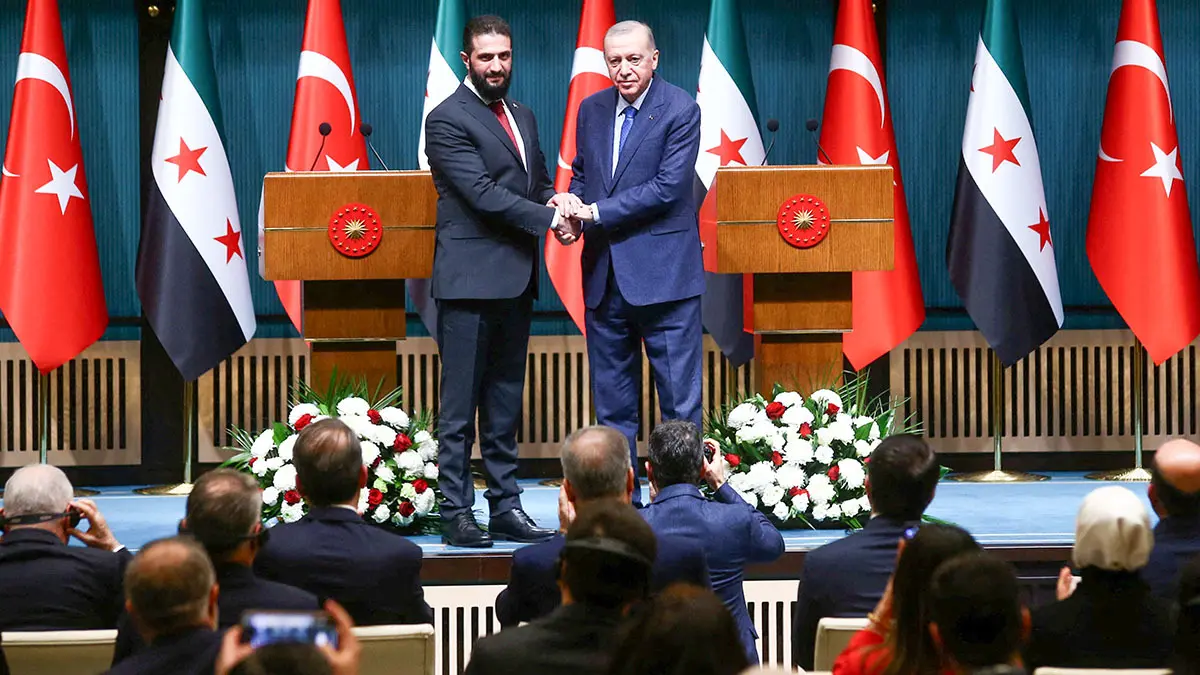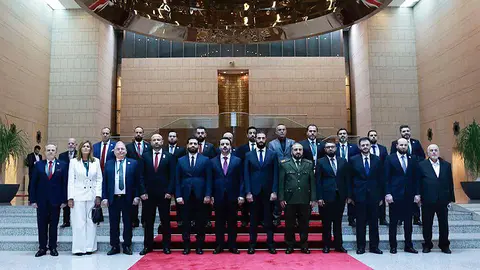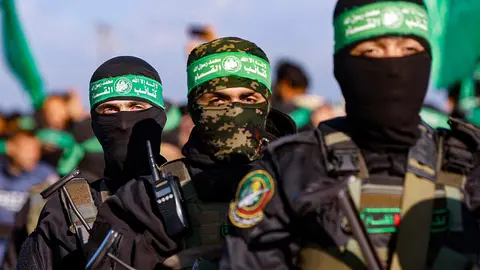Israel seeks to reduce Turkey's influence in Syria and prevent direct conflict
Experts have pointed out that the recent Israeli bombings are attempts to stop Turkey from using Syrian military bases to consolidate its presence

Israel has increased its air strikes in Syria with the intention of reducing Turkish militarisation in the nation and avoiding a direct confrontation with Ankara.
Officials in Israel stated that the attacks serve as a warning to the radical Islamist leaders in Damascus and on Thursday accused Turkey, their ally, of trying to transform Syria into a Turkish protectorate.
Later on Thursday, Turkey said Israel must withdraw from Syria and stop harming stabilisation efforts there.
“Israel has become the greatest threat to regional security” and is a “strategic destabiliser, causing chaos and feeding terrorism,” the foreign ministry in Ankara said.
“Therefore, in order to establish security throughout the region, Israel must first abandon its expansionist policies, withdraw from the territories it occupies, and stop undermining efforts to establish stability in Syria,” it said.
The strikes, targeting a site near Damascus and air bases, put renewed focus on Israeli concerns about the Islamists who deposed Bashar al-Assad in December, with Israeli officials viewing them as a rising threat at their border.
Also suspicious of Ankara’s sway over Damascus, Israel has been working to advance its goals in Syria since Assad was toppled, seizing ground in the southwest, declaring a willingness to protect the Druze minority, lobbying Washington for a weak state, and blowing up much of the Syrian military’s heavy weapons and equipment in the days after Assad fell.
The Israeli army said its forces operating in the southwest overnight killed several militants who opened fire on them. They were on a targeted mission at the time beyond the separation zone where they are deployed inside Syria, it said.
Syria’s state news agency SANA said Israeli shelling had killed nine people in the area, during what it described as the deepest incursion yet by Israeli troops in the area.
Israeli Defence Minister Israel Katz on Thursday warned Syrian leader Ahmed al-Sharaa that he would face severe consequences if Israel’s security was threatened.
“I warn Syrian leader Golani: If you allow hostile forces to enter Syria and threaten Israeli security interests, you will pay a heavy price,” Katz said in a statement, addressing the Syrian leader with his former nom de guerre Abu Mohammed al-Golani.
“The Air Force’s activity yesterday near the airports in T4, Hama, and the Damascus area sends a clear message and serves as a warning for the future,” Katz said in the statement on Thursday.
He added that Israeli forces “will continue to operate on the summit of Mount Hermon and in security and buffer zones to protect” Israeli communities in the Golan Heights and the Galilee.
In December, as rebels were overthrowing president Bashar al-Assad in Damascus, Netanyahu ordered Israeli troops to enter the UN-patrolled buffer zone between the Israeli-occupied and Syrian-controlled Golan Heights.
In February, he also demanded that southern Syria be completely demilitarised and said his government would not accept the presence of the forces of the new Islamist-led government near Israeli territory.
Reflecting Israeli concerns about Turkish influence in the new Syria, Foreign Minister Gideon Saar accused Ankara of playing a “negative role” there, in Lebanon and other regions.
“They are doing their utmost to have Syria as a Turkish protectorate. It’s clear that is their intention,” he told a press conference in Paris.
The Syrian foreign ministry said the Israeli strikes were an unjustified escalation aimed at destabilising the country, calling on the international community to put pressure on Israel to “stop its aggression.”
Later on Thursday, Israeli strikes targeted the town of Kiswah, south of Damascus, according to Syria’s state news agency. There were no immediate reports of casualties and no immediate comment from the Israeli military.
Israel bombed Syria frequently when the country was governed by Assad, targeting the foothold established by his ally Iran during the civil war.
The latest strikes were some of the most intense Israeli attacks in Syria since Assad was toppled.
The Syrian Foreign Ministry said Israel hit five separate areas within a 30-minute window, resulting in the near-complete destruction of the Hama air base and wounding dozens of civilians and soldiers.
The Israeli military said it had struck remaining military capabilities at air bases in Hama and Homs provinces, in addition to remaining military infrastructure in the Damascus area, where Syrian media and officials said the vicinity of a scientific research facility was hit.
In Hama, a Syrian military source told Reuters a dozen strikes demolished the runways, tower, arms depots and hangars at the military airport. “Israel has completely destroyed Hama air base to ensure it is not used,” the source said.
Israel also said on Wednesday it targeted the T4 air base in Homs province, which it has repeatedly hit over the past week.
In the incident in southwestern Syria, the Israeli military said its forces were operating in the Tasil area, “confiscating weapons and destroying terrorist infrastructure” when several militants fired on them.
Residents of the Tasil area reached by phone said a group of armed locals was killed after confronting an Israeli army contingent that had arrived in the area to destroy a former Syrian army encampment.
The Israeli military said there were no casualties among its forces who “responded with fire and eliminated several armed terrorists from the ground and air.”
“The presence of weapons in southern Syria constitutes a threat to the State of Israel,” it said. “The IDF will not allow a military threat to exist in Syria and will act against it.”










